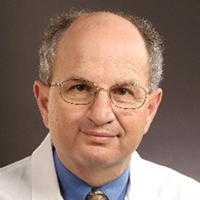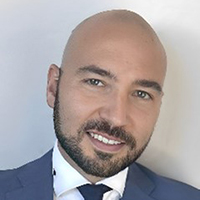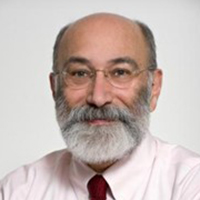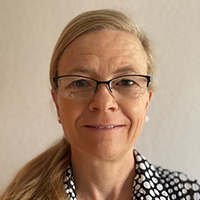Science & Innovation Forum – Pros & Cons of Big & Small Data in RBC Biology Followed by: Perspectives on A New Innovation in RBC Processing and Storage
Please note: AABB reserves the right to make updates to this program.
When: On Demand
Presented by Hemanext®, an AABB Premium Corporate Partner.
Big data involves information that is generated and analyzed on a vast scale. Omix technologies, for example, have helped us recognize emerging patterns in metabolism and red blood cell biology that can potentially identify and modify physiologic alterations before they manifest in large populations, e.g., trauma patients.
Small data is personalized, patient centered, and can provide big insights for the individual. Small data sets are easy to collect, analyze and understand and address specific aspects of a disease or condition. Small data is also helpful in making focused and rapid decisions based on insights and experience.
This program will describe the two kinds of data; the pros and cons of each in patient diagnosis and treatment. Examples and case studies will be provided. In addition, we will explore insights on the implementation of a new innovation in red blood cell transfusion therapy, Hemanext ONE® Processing and Storage System.
After attending this program, participants should be able to:
- Define the difference between big and small data.
- Identify whether big data can be used for individual patients.
- Discuss the appropriate use of small data.
- Identify how to generate valuable knowledge using big and small data.
- Discover insights on a new innovation in red blood cell storage.
Intended Audience: CEOs, COOs, Directors, Donor Recruitment Staff, Facilities that perform molecular testing, Hospital Blood Banks, Hospitals, Immunohematology Reference Labs (IRL’s), Laboratory Staff, Medical Directors, Nurses, Perfusionists, Physicians, Research Scientists, Residents/Fellows, Scientists, Technologists, Transfusion Safety Officers
Watch Webinar (Registration Required)
This Science & Innovation Forum is complimentary to all, but registration is required. By registering for this AABB-hosted program you consent to have your information shared with the program sponsor, Hemanext®. Once registered, you will receive an automated email from customercare@gotowebinar.com with access instructions unique to you (check your spam or junk email folders if you do not receive it; add customercare@gotowebinar.com to your safe sender list). The program will be hosted on GoToWebinar so please take a moment prior to the live program to perform a System Check for GoToWebinar. Register here.
Faculty

Moderator: Paul Ness, MD
Prior director of the Division of Transfusion Medicine, Program
Director of the Blood Banking/Transfusion Medicine Fellowship Program in the Department of Pathology at Johns Hopkins
Dr. Ness has served as director of the Division of Transfusion Medicine and program director of the Blood Banking/Transfusion Medicine Fellowship Program in the Department of Pathology at Johns Hopkins for 38 years. He also served as editor of Transfusion, a globally recognized journal of medicine, for 15 years, and is former president of the Association for the Advancement of Blood & Biotherapies. Dr. Ness received his undergraduate degree from the Massachusetts Institute of Technology and earned his MD from the State University of New York at Buffalo. He completed his residency at The Johns Hopkins Hospital and performed a fellowship in Hematology-oncology at the University of California San Francisco.

Angelo D’Alessandro, PhD
Professor of Biochemistry and Molecular Genetics, Director of the Metabolomics Core, Director of Mass Spectrometry – Colorado Cancer Center, University of Colorado Anschutz Medical Campus
Dr. Angelo D’Alessandro is a Professor, Director of the Metabolomics Core, and Director of Mass Spectrometry at the Colorado Cancer Center at the University of Colorado Anschutz Medical Campus. Dr. D’Alessandro received his PhD at the Tuscia University (Italy) under the aegis of the Italian National Blood Center. His postdoctoral career focused on Mass Spectrometry-based Omics technologies at Bruker Daltonics (Bremen, Germany), Cancer Metabolism at the Beatson Institute for Cancer Center (Glasgow, Scotland) and Metabolomics in Transfusion Medicine at the University of Colorado Denver (Aurora, USA). He also serves as Linda Crnic Investigator for the Linda Crnic Institute of Down Syndrome. Dr. D’Alessandro is a founder and CSO of Omix Technologies Inc. and Altis Biosciences LLC. He serves as Associate Editor for the journal Blood Transfusion, Frontiers in Physiology, and Molecular Cell Proteomics. In 2019 he edited a thematic book on High-Throughput metabolomics for the Springer Nature series in Methods in Molecular Biology. Dr. D’Alessandro has been awarded the 2015 Scott Murphy lectureship by the Biomedical Excellence for Safer Transfusion (BEST) group, the Early Career grant by the National Blood Foundation (2016) and the 2017 Webb-Waring Early Career grant by the Boettcher Foundation. He is a National Blood Foundation Scholar (2018).

Steven Spitalnik, MD
Professor of Pathology and Cell Biology
Columbia University Medical Center, New York, NY
Dr. Steven Spitalnik, MD is the Co-Director of the Laboratory of Transfusion Biology, which pursues NIH-funded research aimed at improving transfusion practice. Dr. Spitalnik is a Professor of Pathology and Cell Biology at Columbia University Medical Center (CUMC). As the Medical Director of the Clinical laboratories on the CUMC campus of the New York-Presbyterian Hospital, he coordinates the clinical service, educational, and scholarly activities of the Division. He is a long-standing member of the Academy of Clinical Laboratory Physicians & Scientists, serving as its President in 2002-03 and, in 2005, receiving its Gerald T. Evans Award for outstanding leadership and service to the Academy. In addition to being board certified in both Anatomic and Clinical Pathology, Dr. Spitalnik is a member of the Editorial Boards of Transfusion, Transfusion Medicine Reviews, and Current Opinion in Hematology, and is the lead author of Clinical Pathology Board Review.

Susanne Marschner, PhD
Vice President, Co-Director, Vitalant Research Institute Denver Senior Investigator
Vitalant, Denver, CO
Dr. Susanne Marschner is the Co-Director and Senior Investigator at the Vitalant Research Institute at its campus extension in Denver, Colorado. Dr. Marschner received her BS and MS from the University of Würzburg, and her PhD from the University of Colorado in collaboration with the University of Würzburg.
The content of this event was developed independently from the AABB continuing education program. The opinions expressed are those of the faculty. Continuing education credit is not offered.
Science & Innovation Forums are live and on-demand programs that are presented by companies serving the AABB community and target critical needs in the field that can be addressed by the sponsor’s solutions technology. Registration is complimentary to all.

